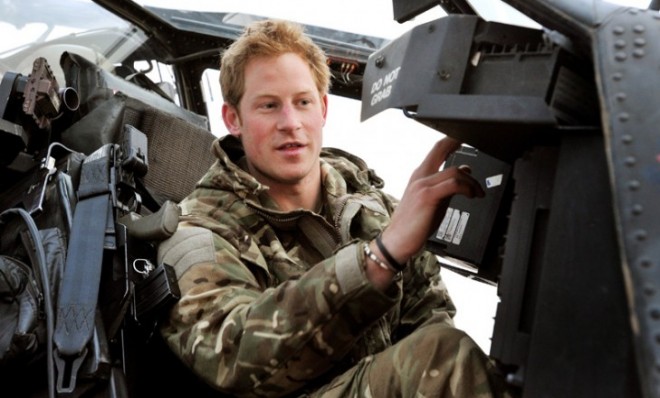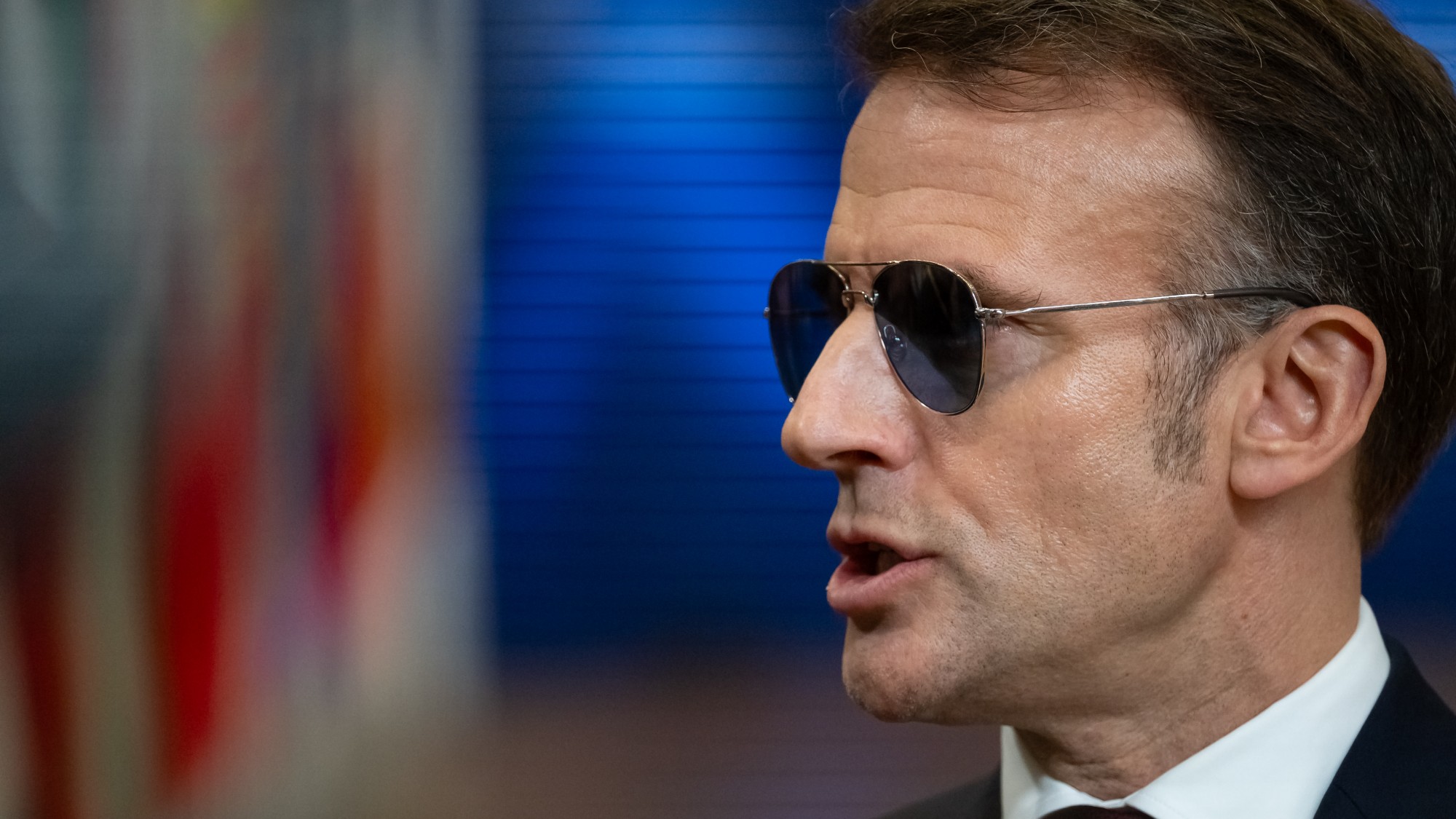In praise of Prince Harry, soldier
Whatever his flaws, the extraordinarily brave prince represents not only the best of England, but in many ways, the best of his generation


The last time someone this close to England's throne fought in the thick of combat, Shakespeare wrote plays about it.
Today's fightin' royal is Prince Harry, who recently made news by admitting to killing members of the Taliban, doing so with a rare matter-of-factness. "Take a life to save a life. That's what we revolve around, I suppose," he said in an interview. "If there's people trying to do bad stuff to our guys, then we'll take them out of the game, I suppose."
Compared to his storming-the-beaches-of-the-Caribbean brother, Prince Harry is practically Larry Thorne, and that's without considering his previous job in the Army. Before taking control of an Apache helicopter, Harry was a forward air controller with the Household Cavalry Regiment, a job that entails calling in airstrikes amid hard-nosed fighting. His record is impressive for any soldier of any military, much less a member of the British royal family, and he's earned an esteemed place in history.
The Week
Escape your echo chamber. Get the facts behind the news, plus analysis from multiple perspectives.

Sign up for The Week's Free Newsletters
From our morning news briefing to a weekly Good News Newsletter, get the best of The Week delivered directly to your inbox.
From our morning news briefing to a weekly Good News Newsletter, get the best of The Week delivered directly to your inbox.
The idea of a British royal laying waste to such a wretched lot as the Taliban has caused alarm, when in fact it should be a source of pride. The war on terror has been marked largely by an absence of public figures, celebrities, or athletes actually taking part in the violence. You're unlikely to see a Colonel Kardashian any time soon.
This compares unfavorably with World War II, when it seems everyone of fighting age with a pulse wore a military uniform at some point. For whatever reason, it is reassuring when movie stars are subjected at least to the pressures of basic training, where they're stripped of their celebrity and individuality and forced to scrub latrines and eat three-minute meals. That Prince Harry placed himself at risk of kidnapping and an almost certain beheading by his captors is quite courageous. It's certainly not something you expect, say, Zero Dark Thirty's Chris Pratt to do. It's easier to play a Navy SEAL than to be a Navy SEAL.
For his part, Captain Wales, as Harry is called, has traded castles for converted Conex boxes. Now back in England, he's even managed to start a war of words with the Taliban. After Harry compared the controls for an Apache with a video game controller, a Taliban spokesman told the London Telegraph that "his statement is not even worth condemning. It is worse than that... To describe the war in Afghanistan as a game demeans anyone — especially a prince, who is supposed to be made of better things." This comes a mere four months after the same Taliban spokesman, Zabihullah Mujahid, told the press of Harry, "We are using all our strength to get rid of him, either by killing or kidnapping... We have informed our commanders in Helmand to do whatever they can to eliminate him."
Harry's family is no stranger to war. His grandfather, Prince Philip, Duke of Edinburgh, who is not in line for the throne, served honorably in World War II on board destroyers and battleships. And many, many royals have appeared on the margins of this war or that. But Harry's path goes straight down the middle. Even if he never pulled the trigger of his Apache's M230 chain gun, the aircraft itself is used only in the most dangerous areas, and when it's called upon, it is specifically because danger is near. Add to this the unforgiving atmospheric conditions of Afghanistan, which make the country notoriously inhospitable to rotary wing aircraft. Whatever his flaws, in volunteering for such a dangerous assignment, Harry represents not only the best of England, but in many ways the best of his generation.
A free daily email with the biggest news stories of the day – and the best features from TheWeek.com
As Shakespeare wrote in Henry V, "That he which hath no stomach to this fight, / Let him depart; his passport shall be made, / And crowns for convoy put into his purse; / We would not die in that man's company / That fears his fellowship to die with us." Our Henry — Prince Harry's real name — might well utter the same words, but he would have to sell Buckingham Palace to afford the number of convoys necessary to send the soft celebrities of today on their way.
David W. Brown is coauthor of Deep State (John Wiley & Sons, 2013) and The Command (Wiley, 2012). He is a regular contributor to TheWeek.com, Vox, The Atlantic, and mental_floss. He can be found online here.
-
 Ukraine, US and Russia: do rare trilateral talks mean peace is possible?
Ukraine, US and Russia: do rare trilateral talks mean peace is possible?Rush to meet signals potential agreement but scepticism of Russian motives remain
-
 Syria’s Islamic State problem
Syria’s Islamic State problemIn The Spotlight Fragile security in prison camps leads to escape of IS fighters
-
 Quiz of The Week: 17 – 23 January
Quiz of The Week: 17 – 23 JanuaryQuiz Have you been paying attention to The Week’s news?
